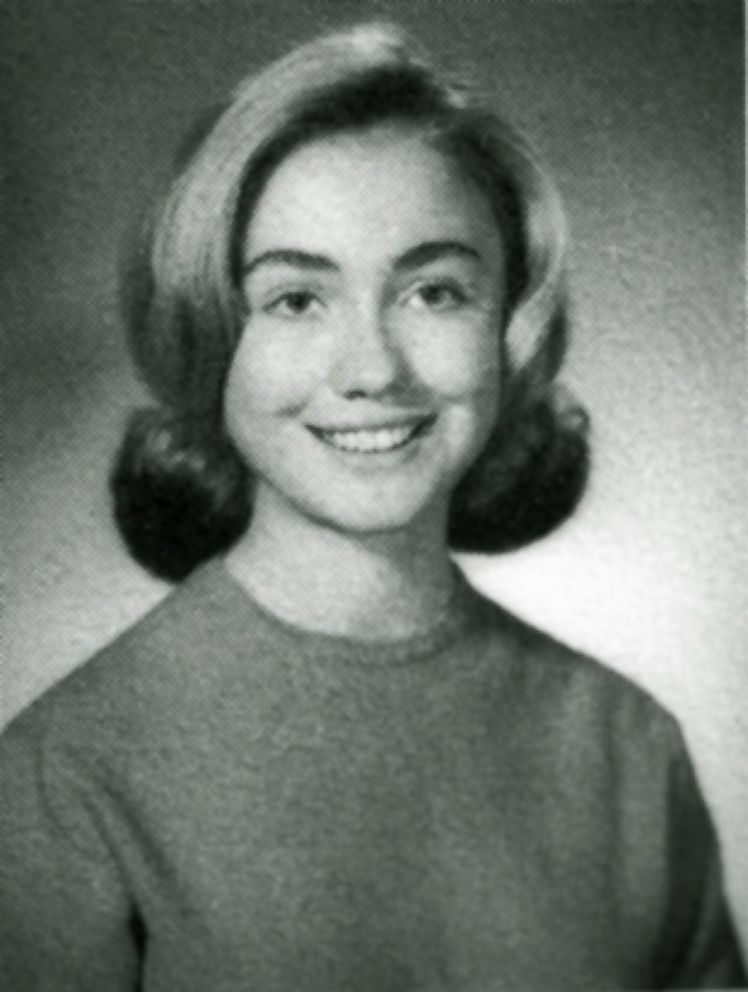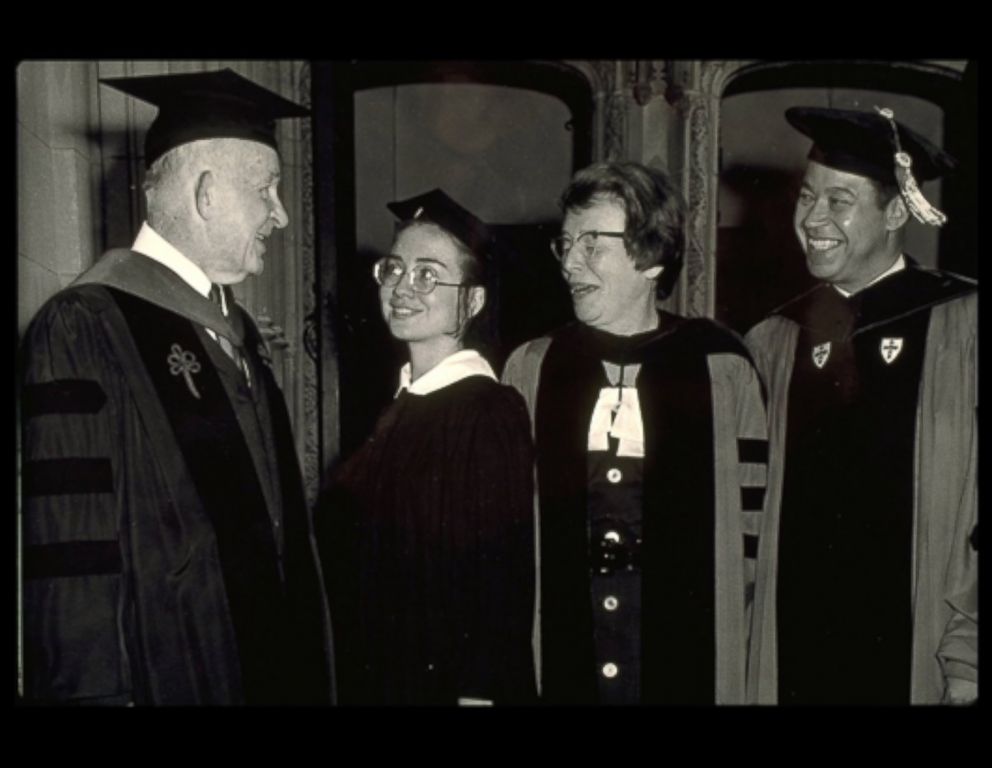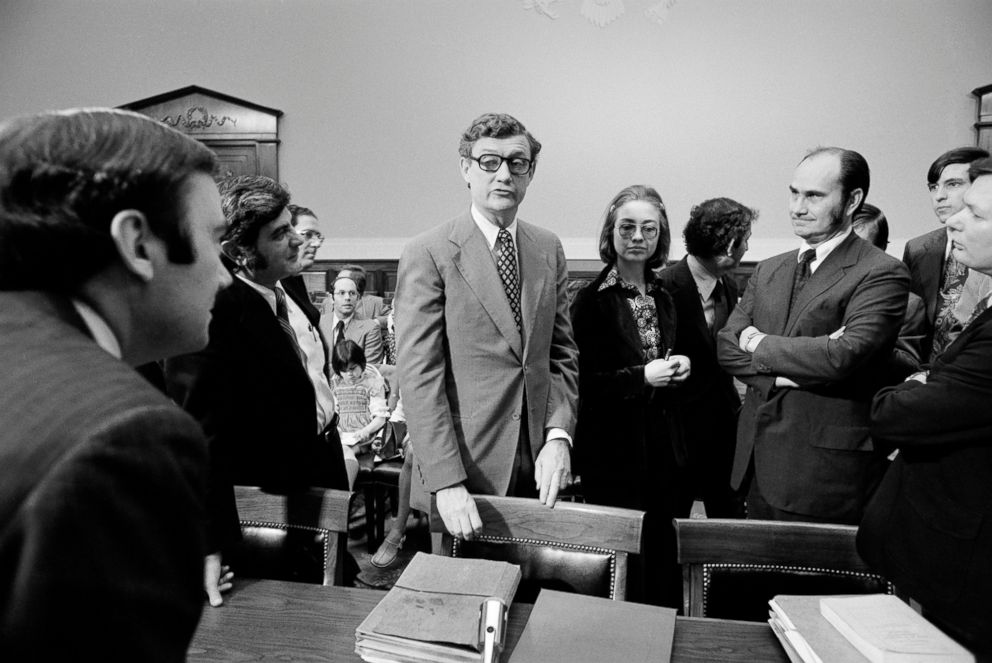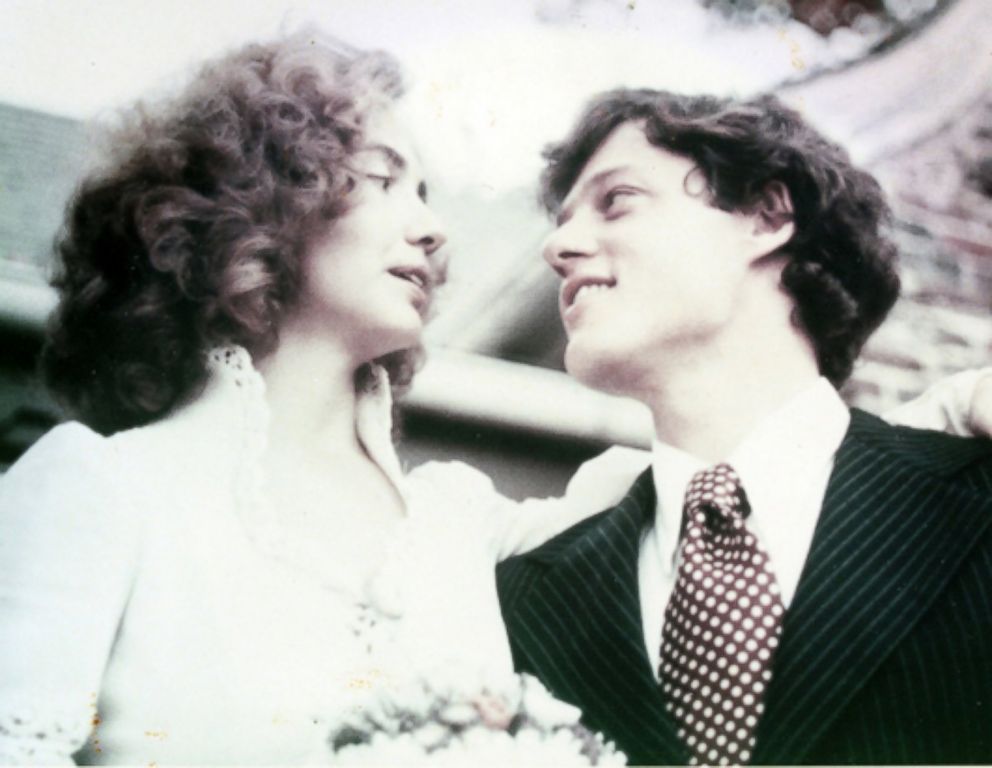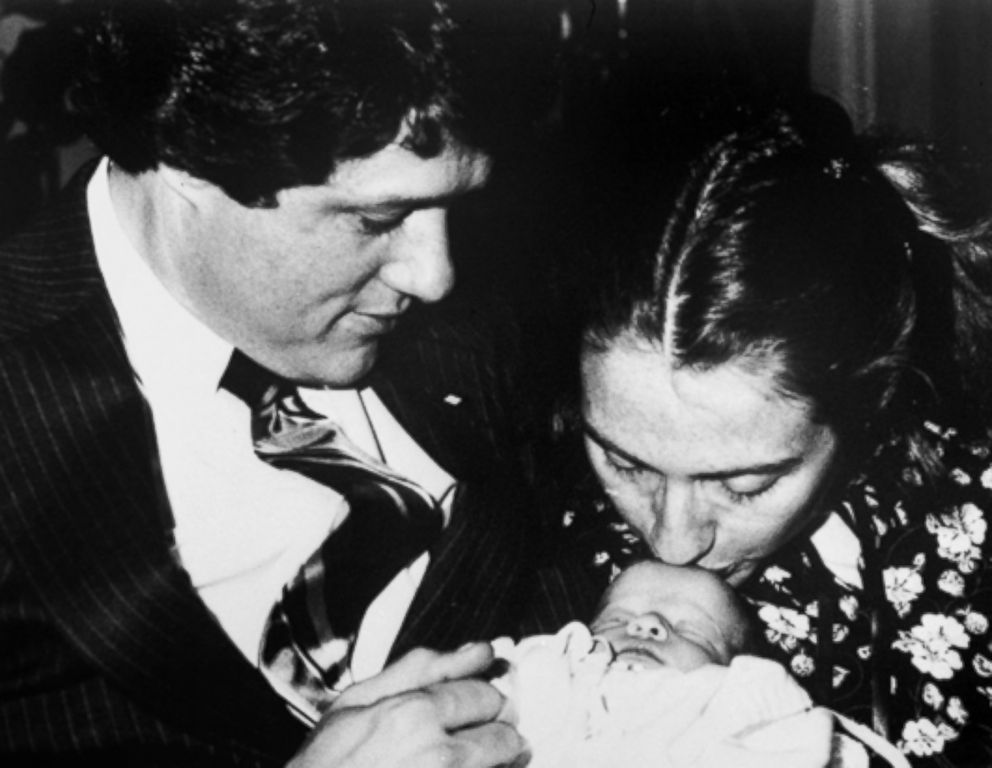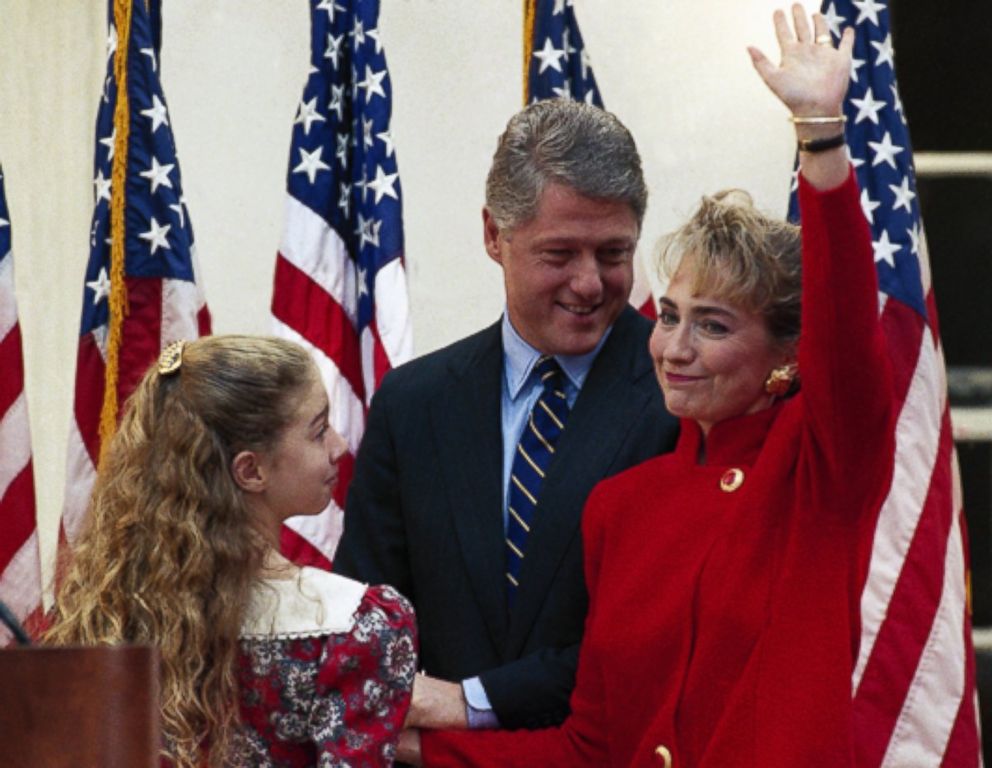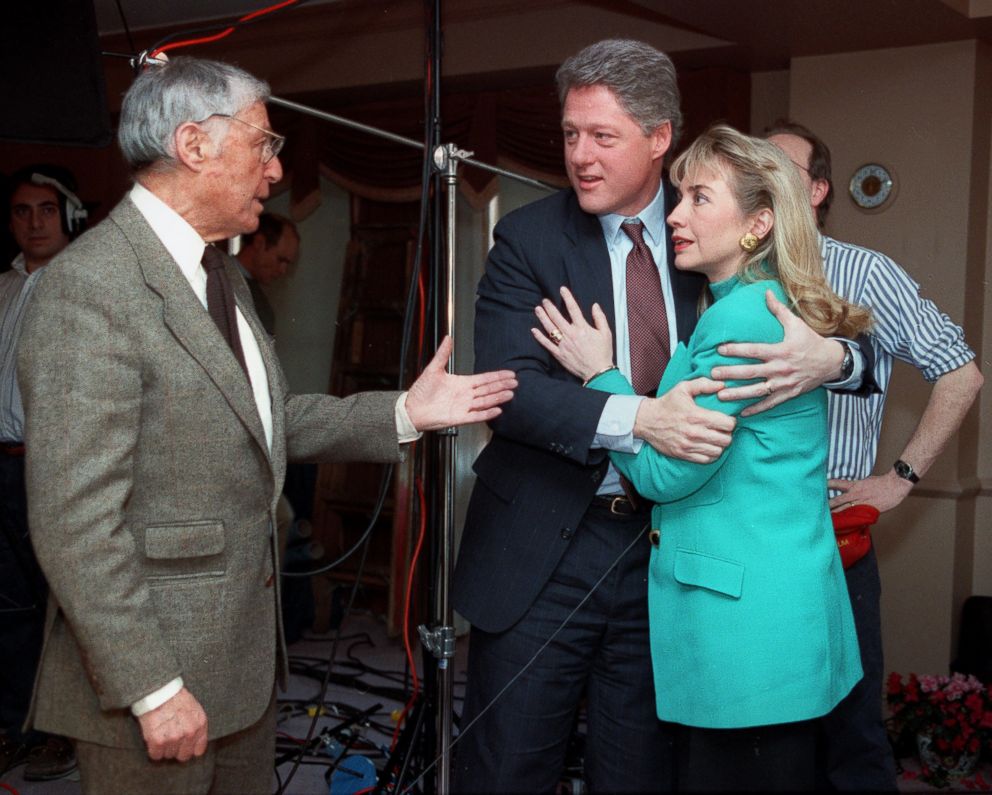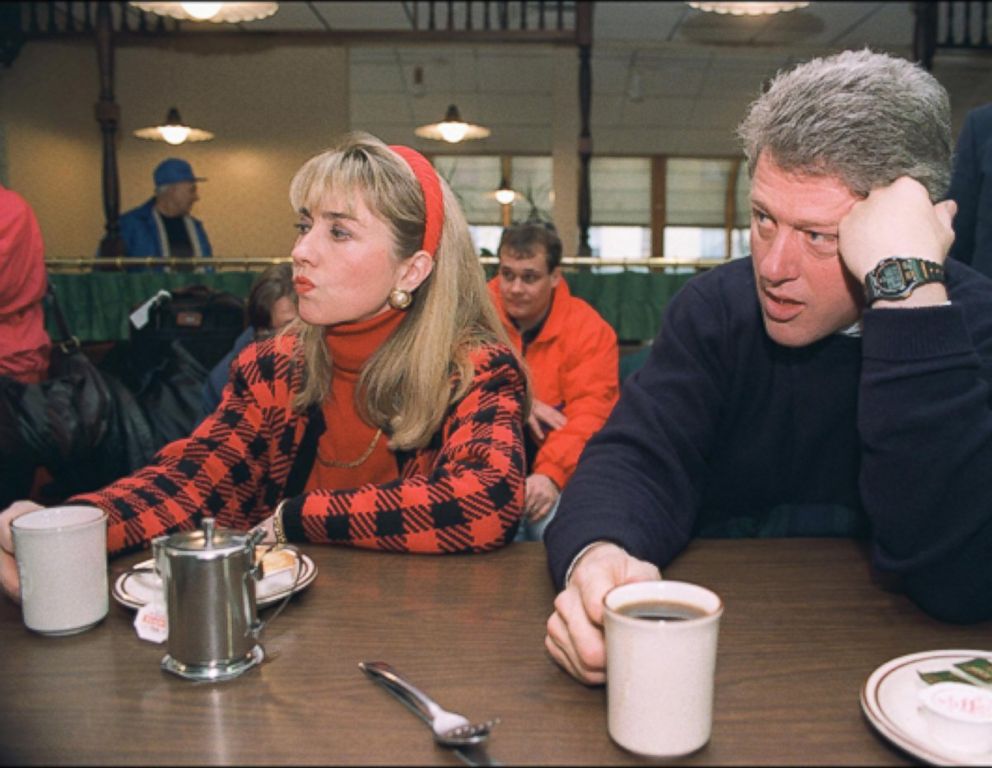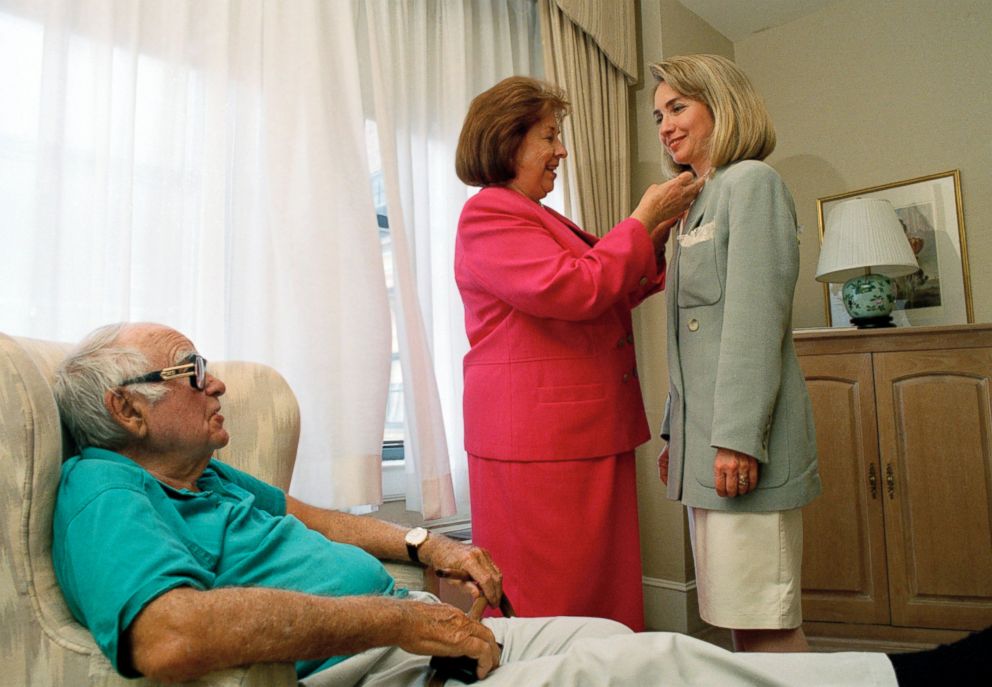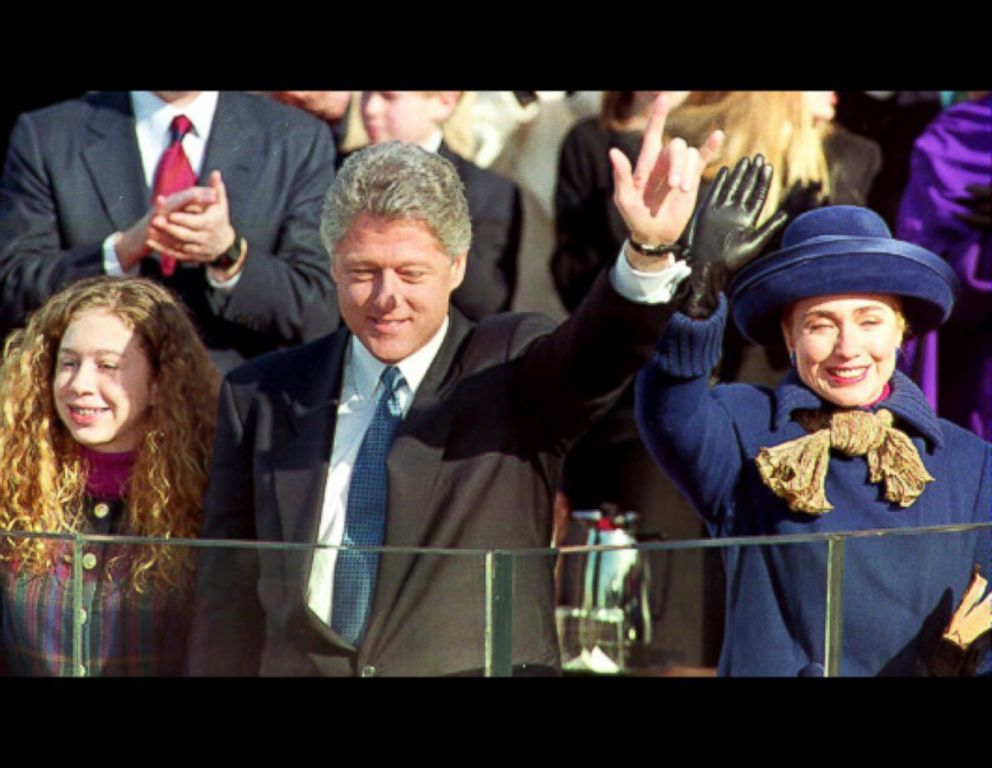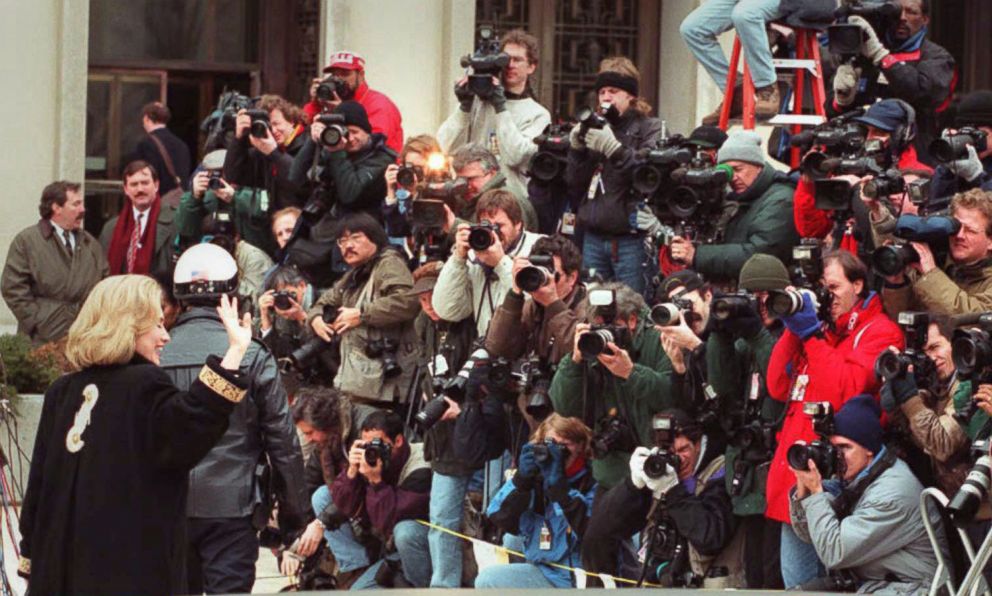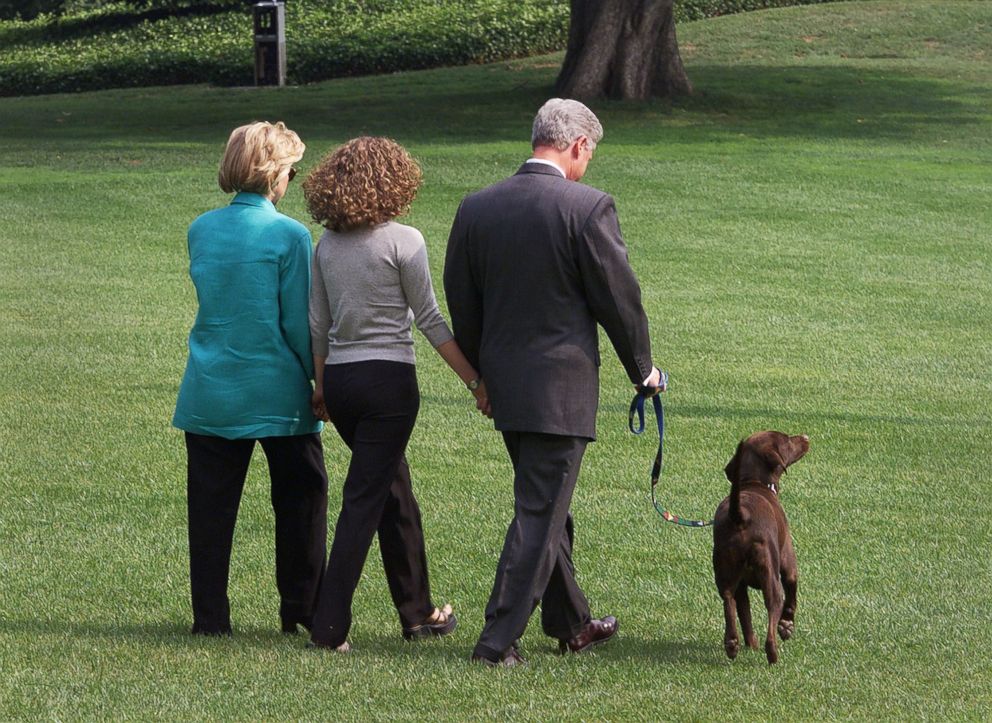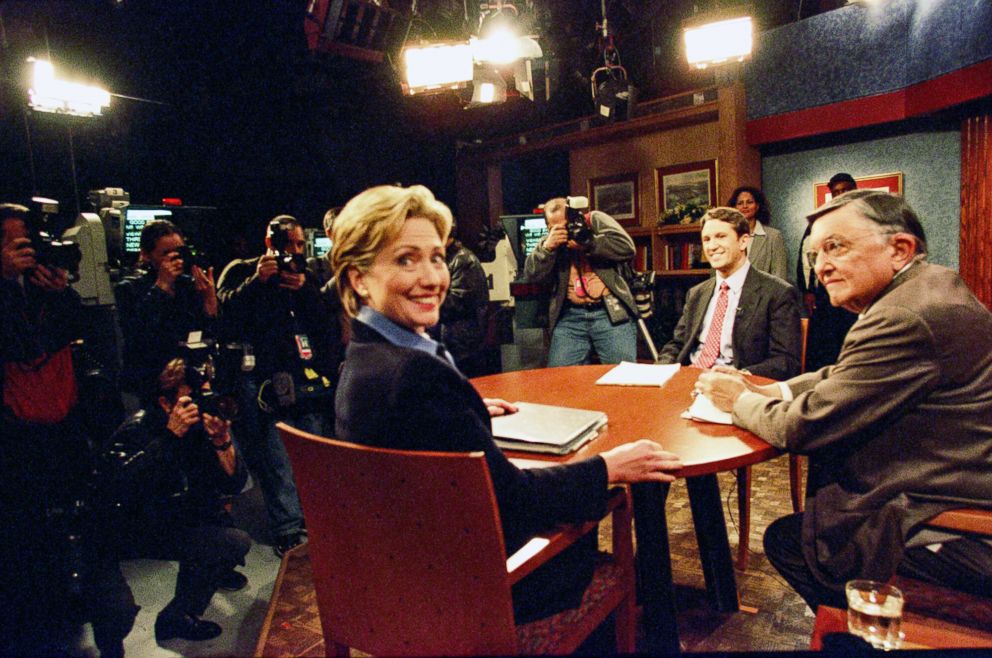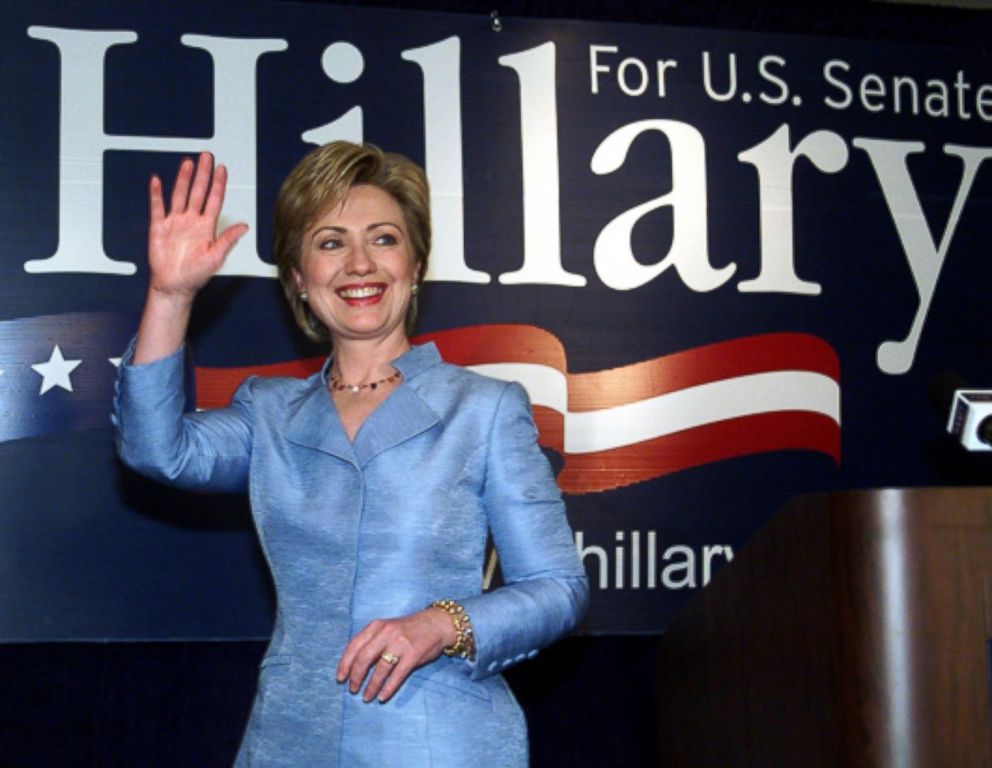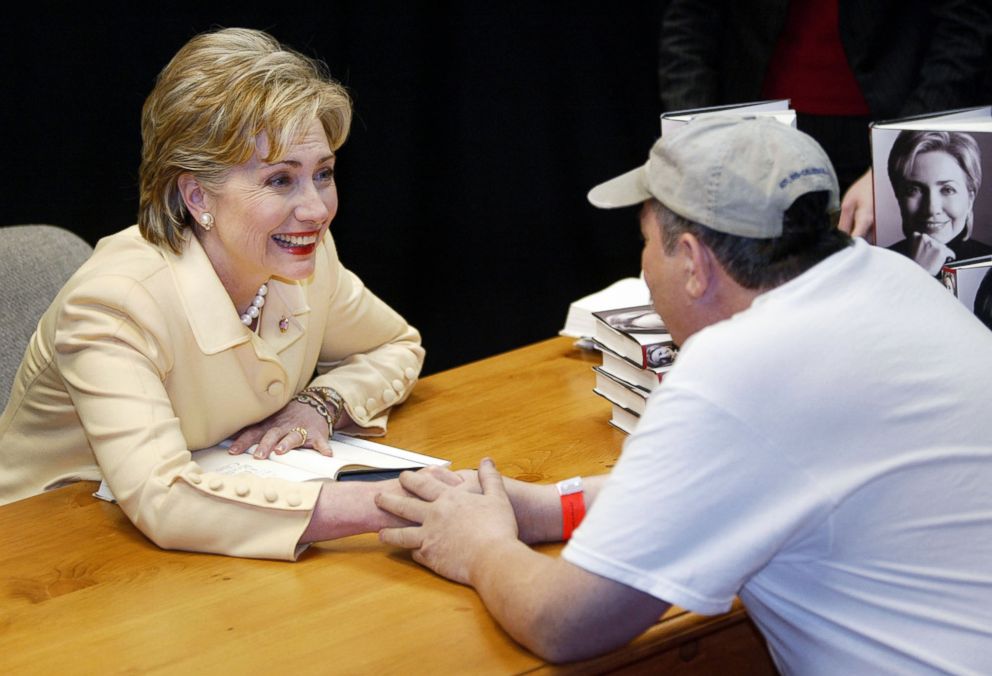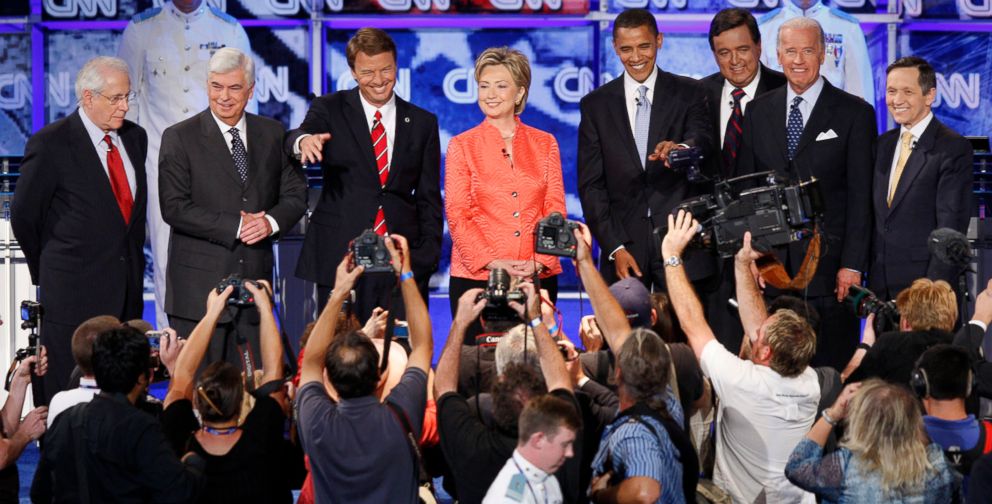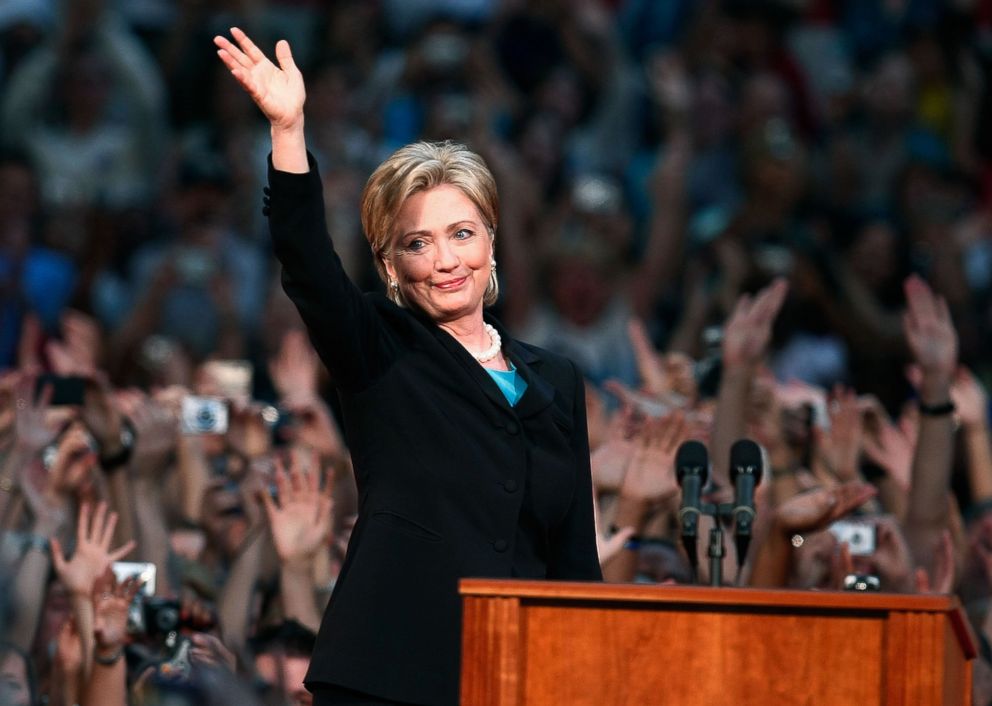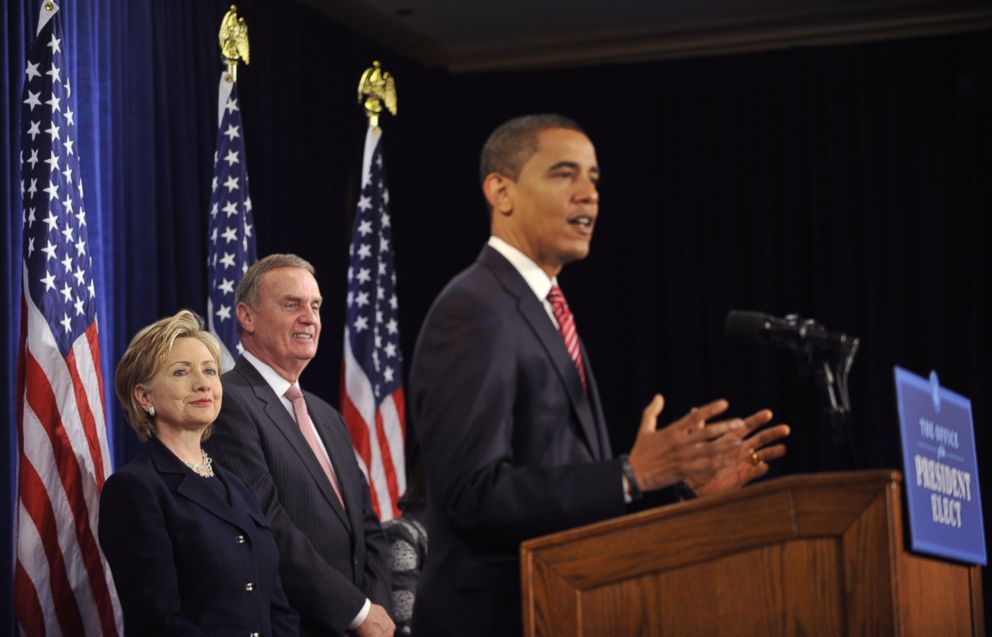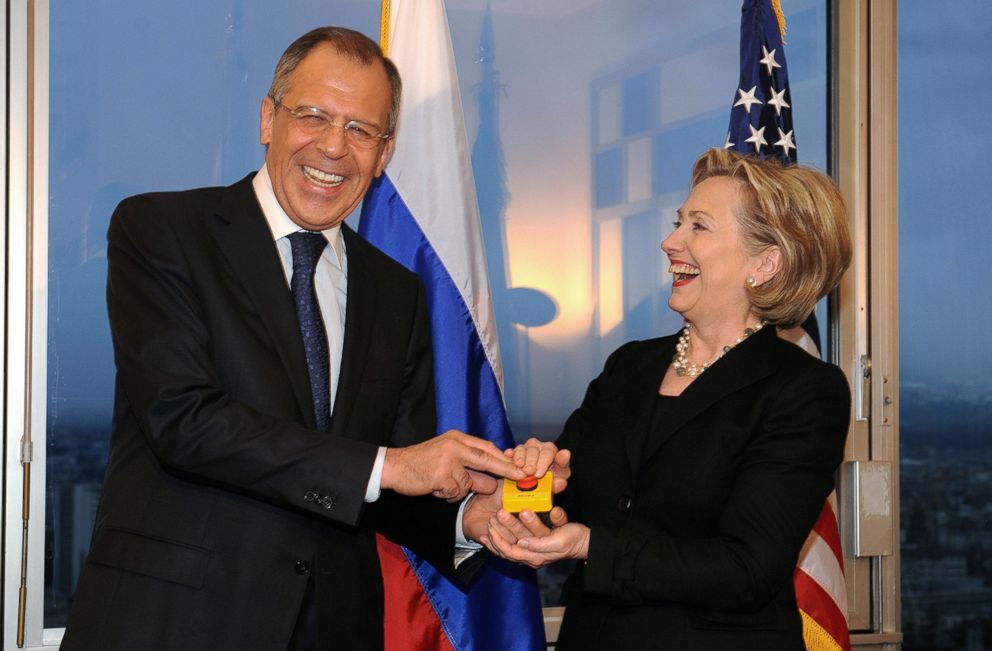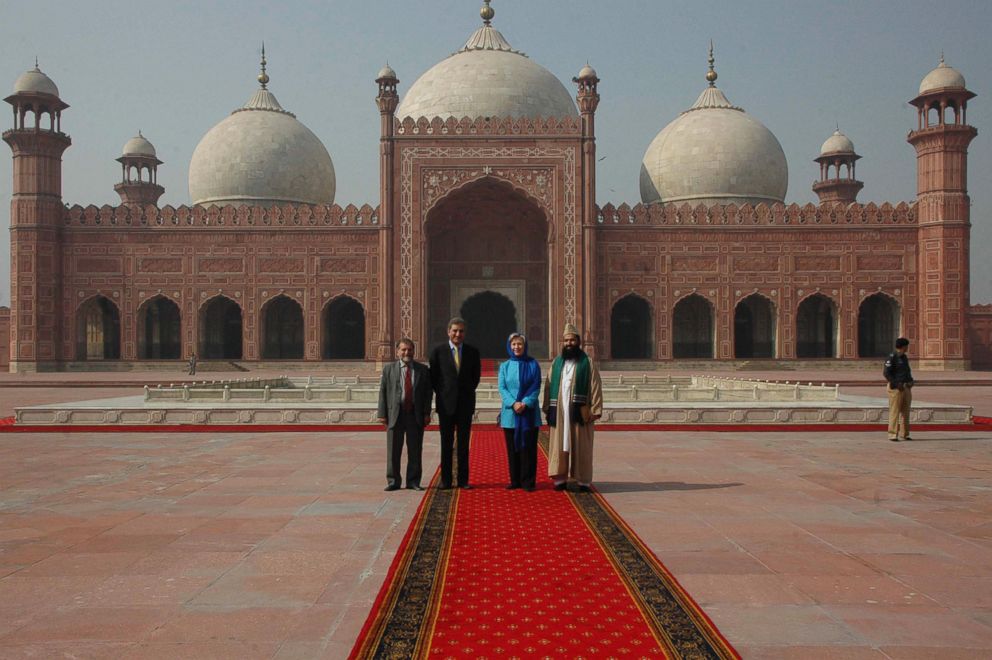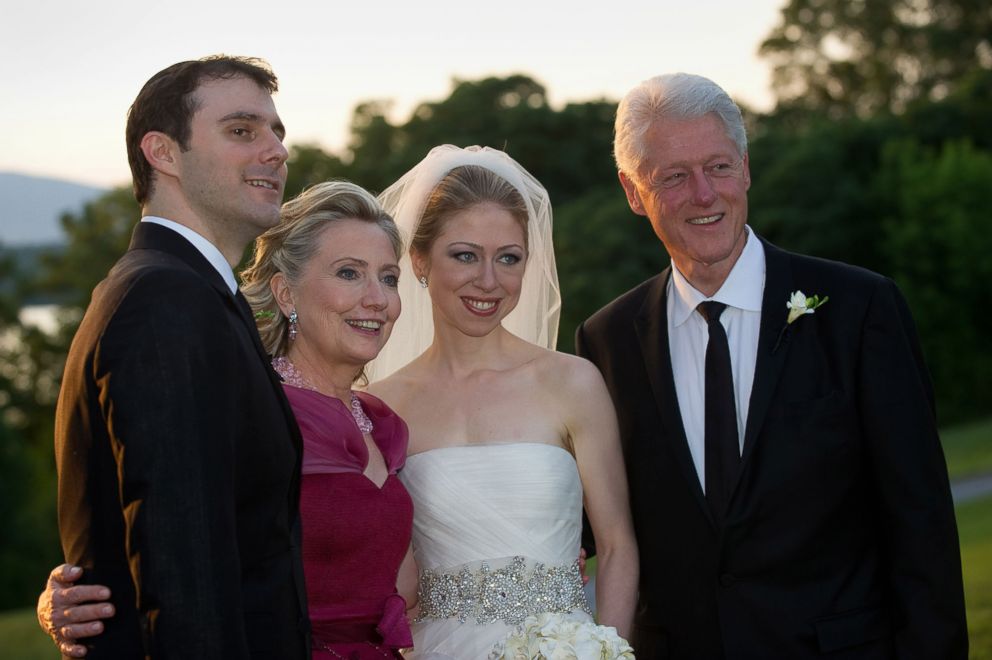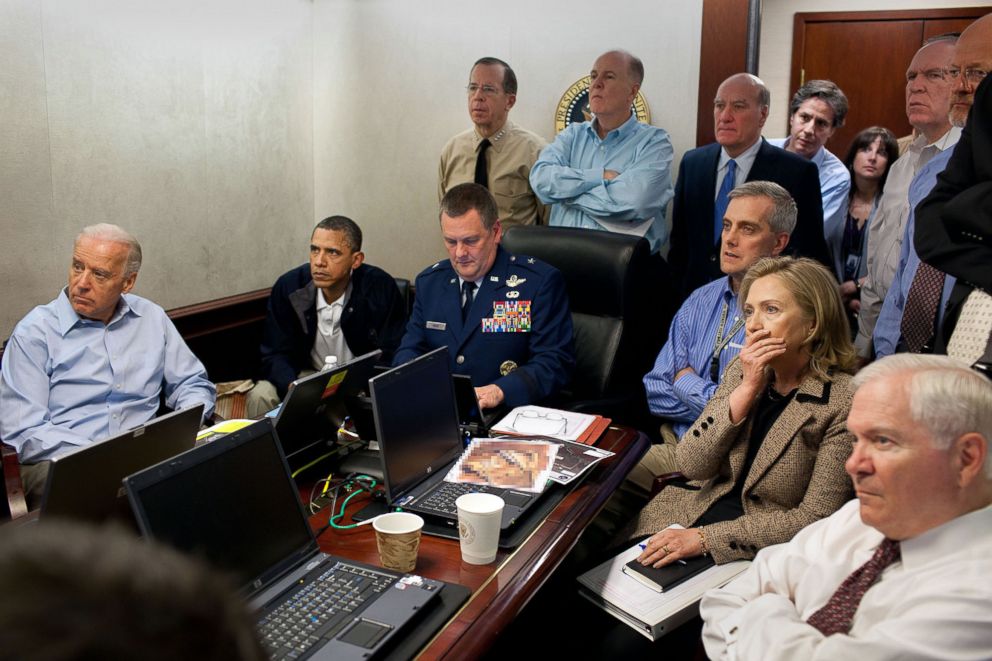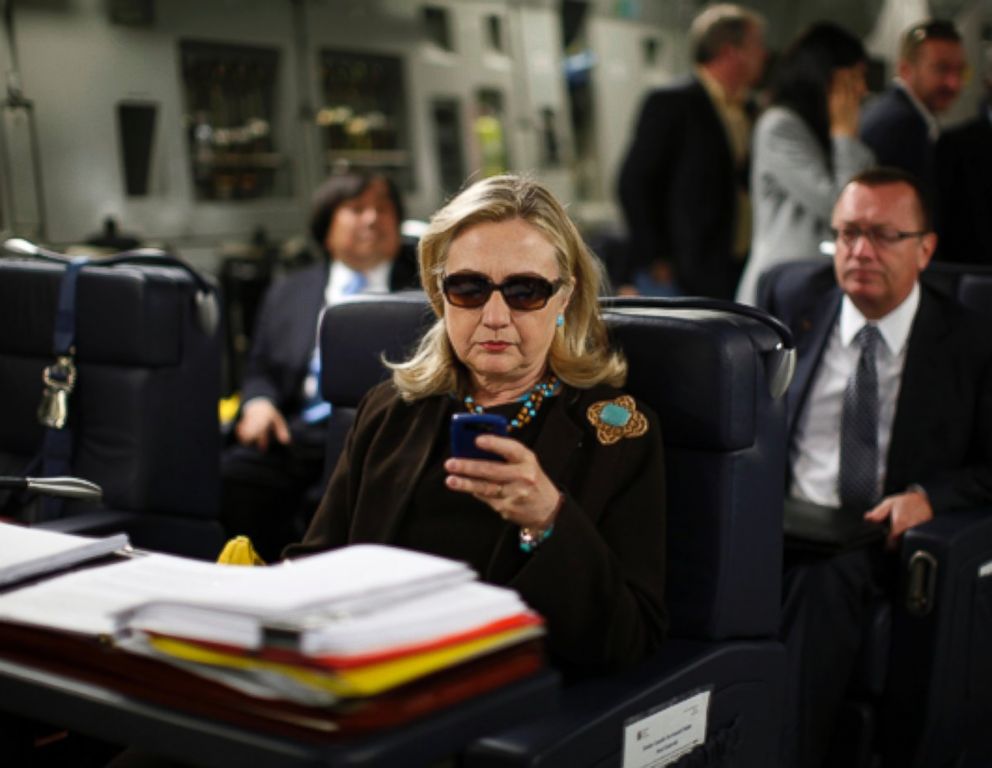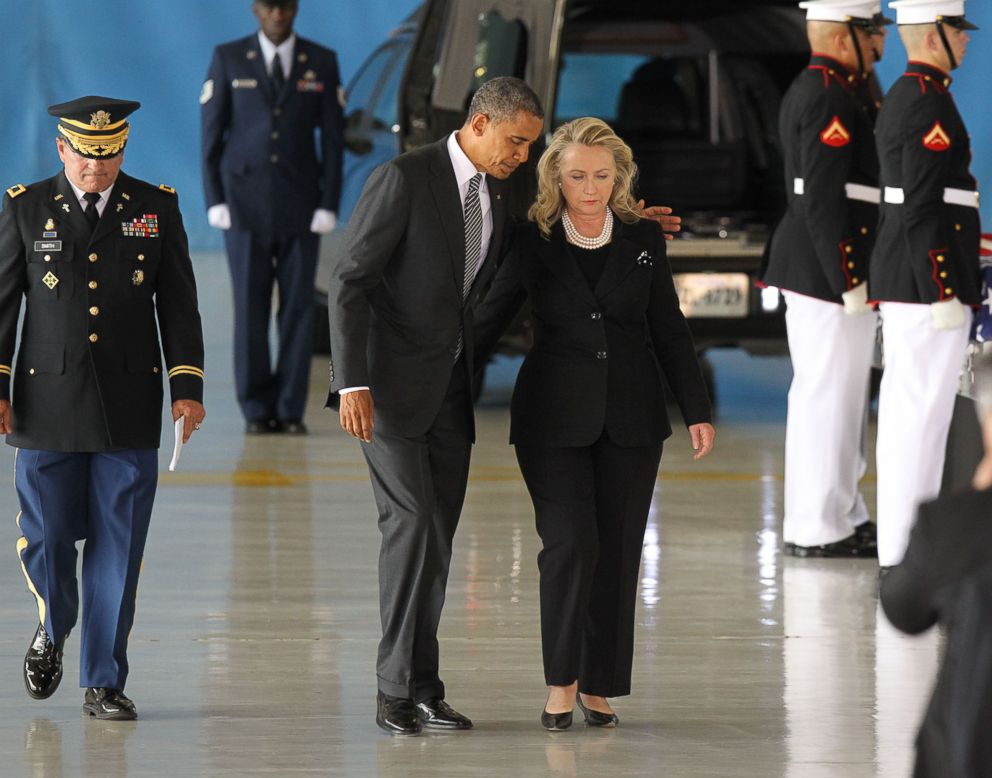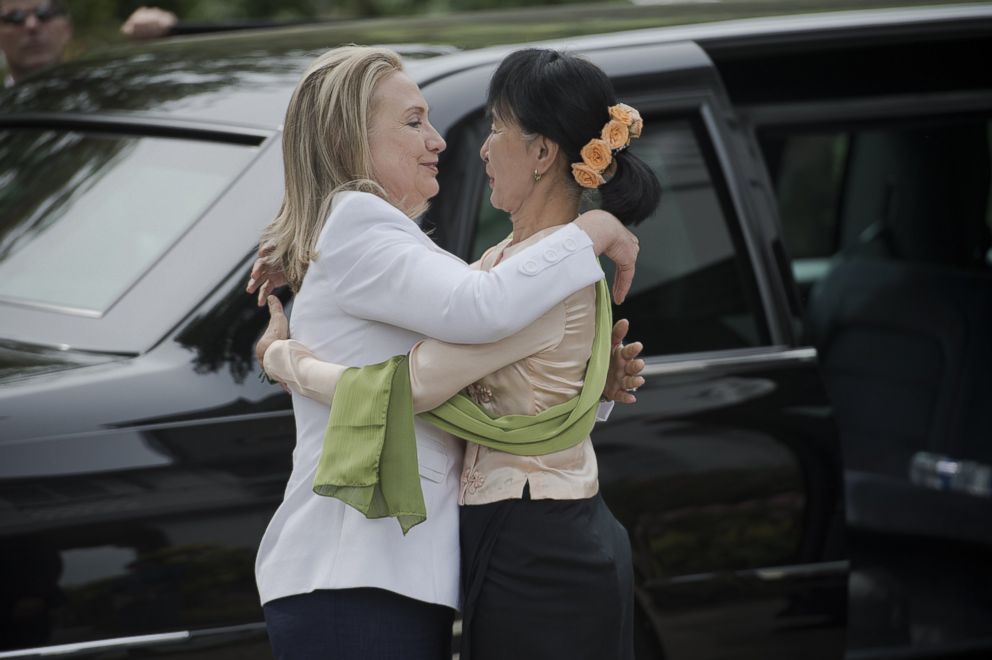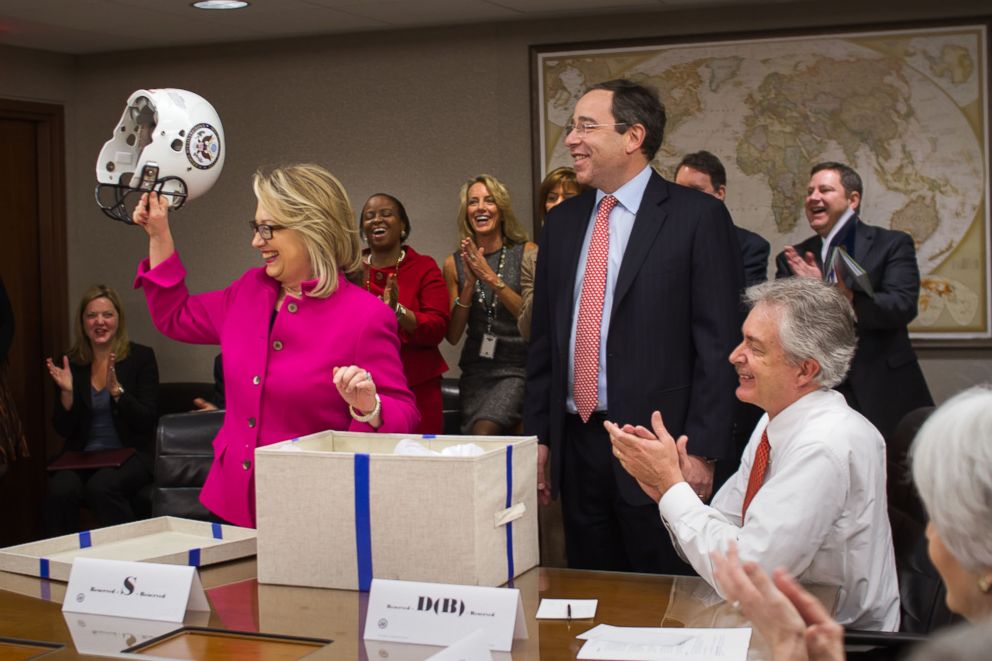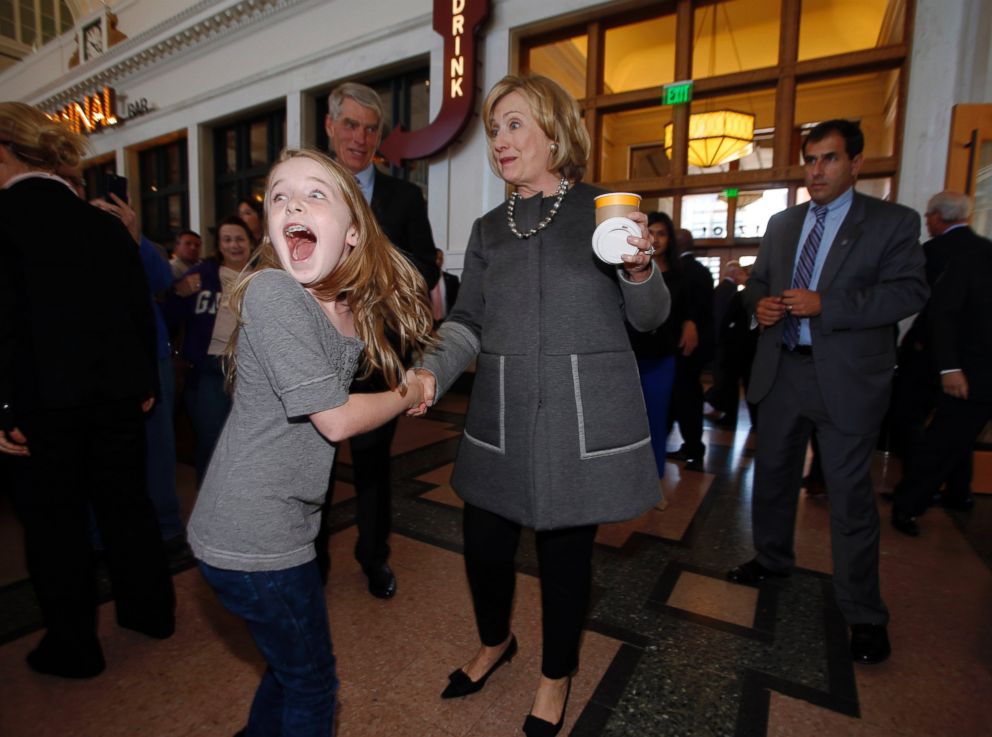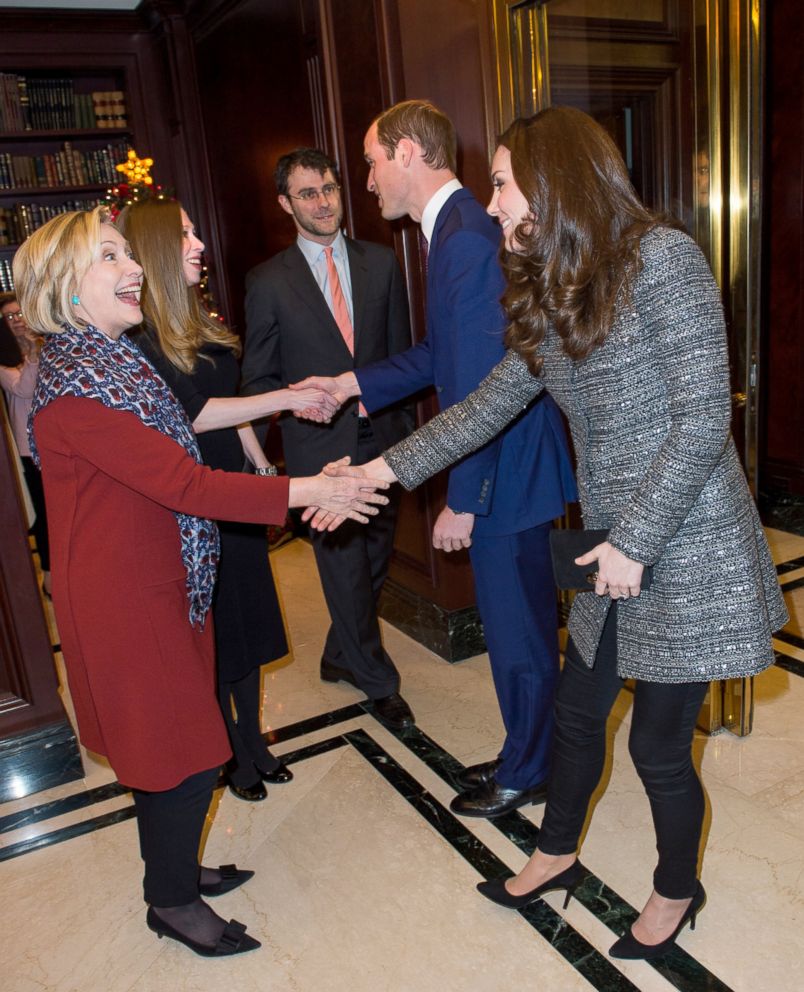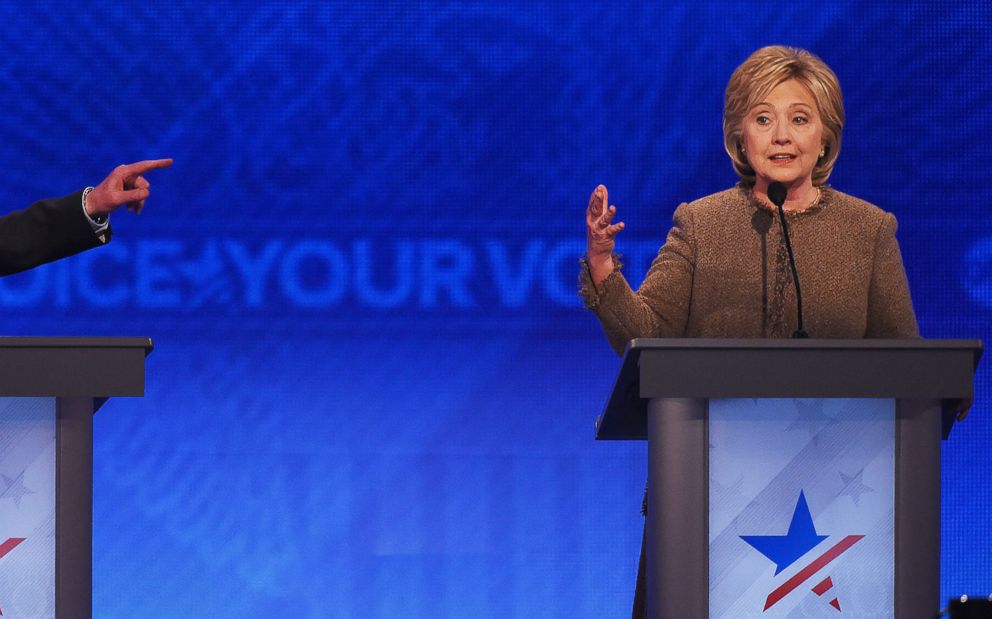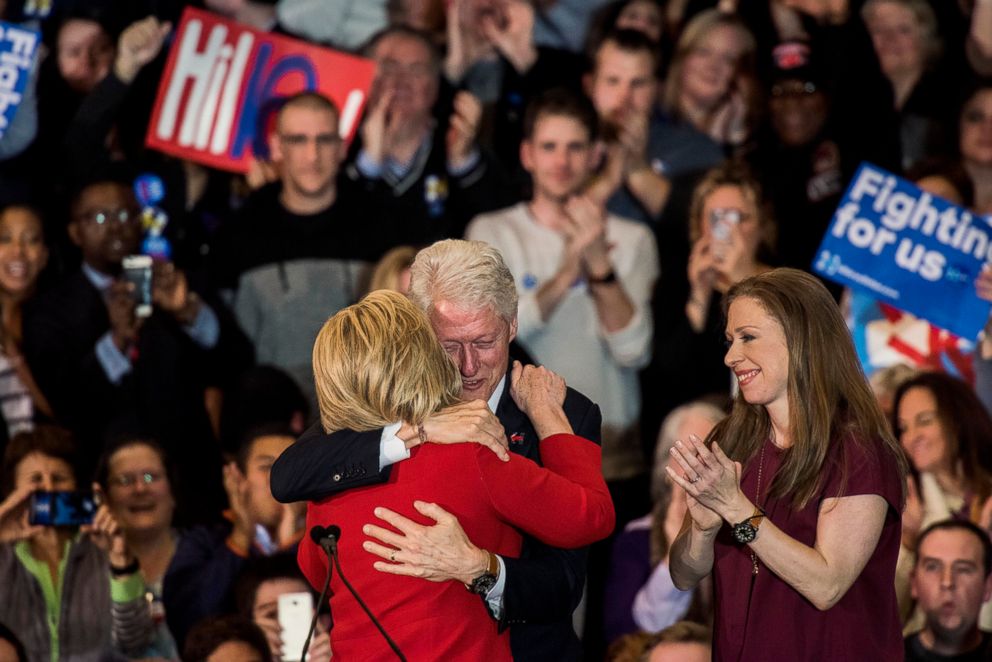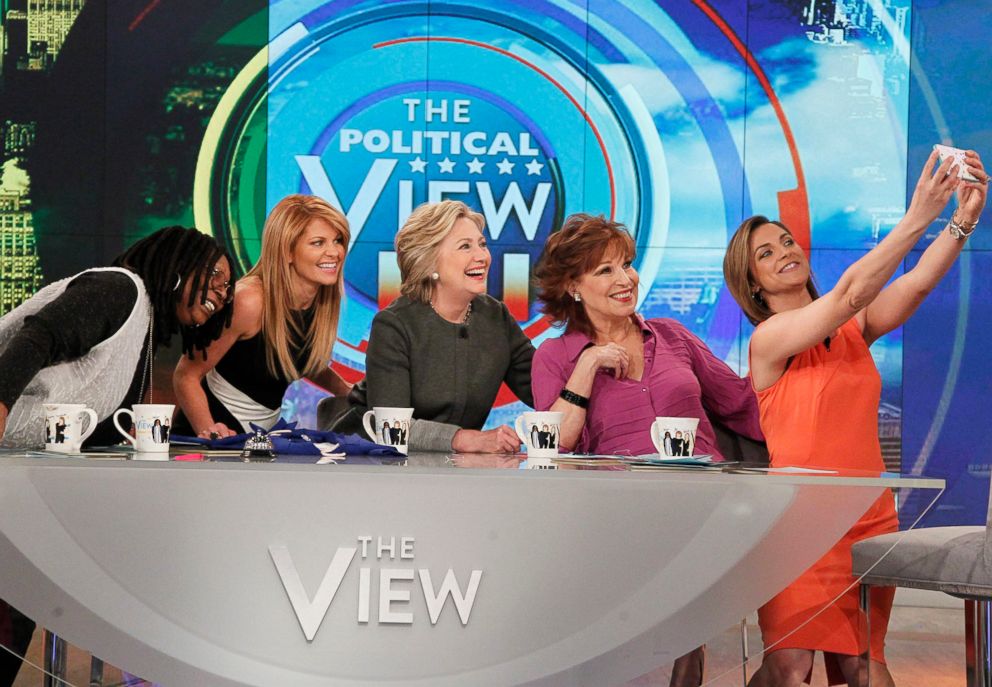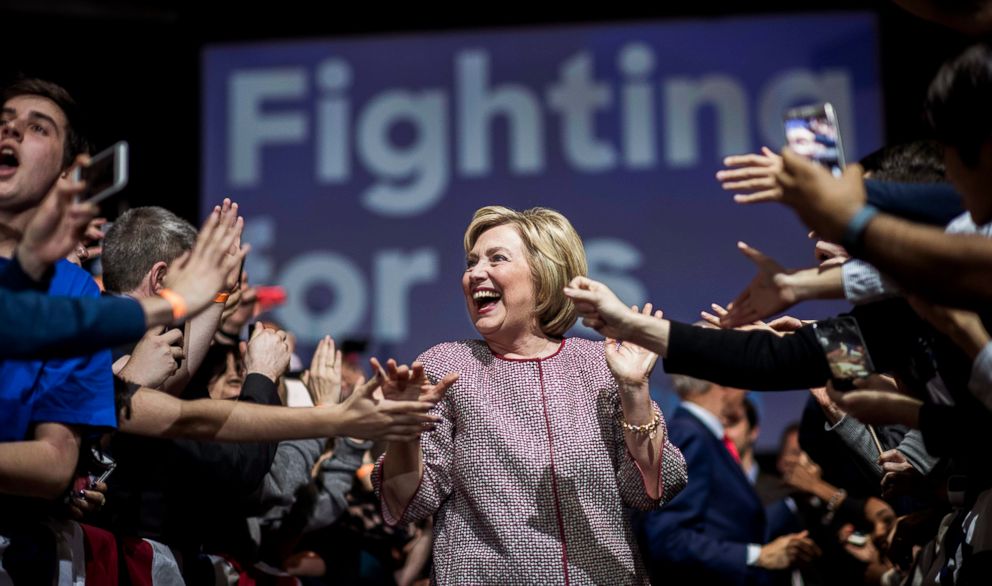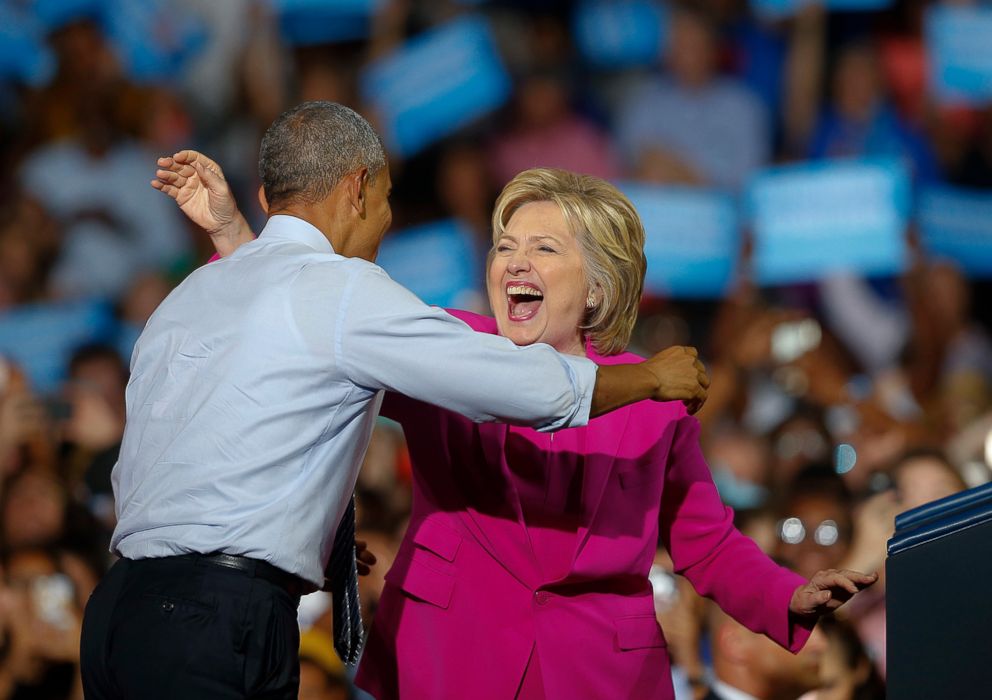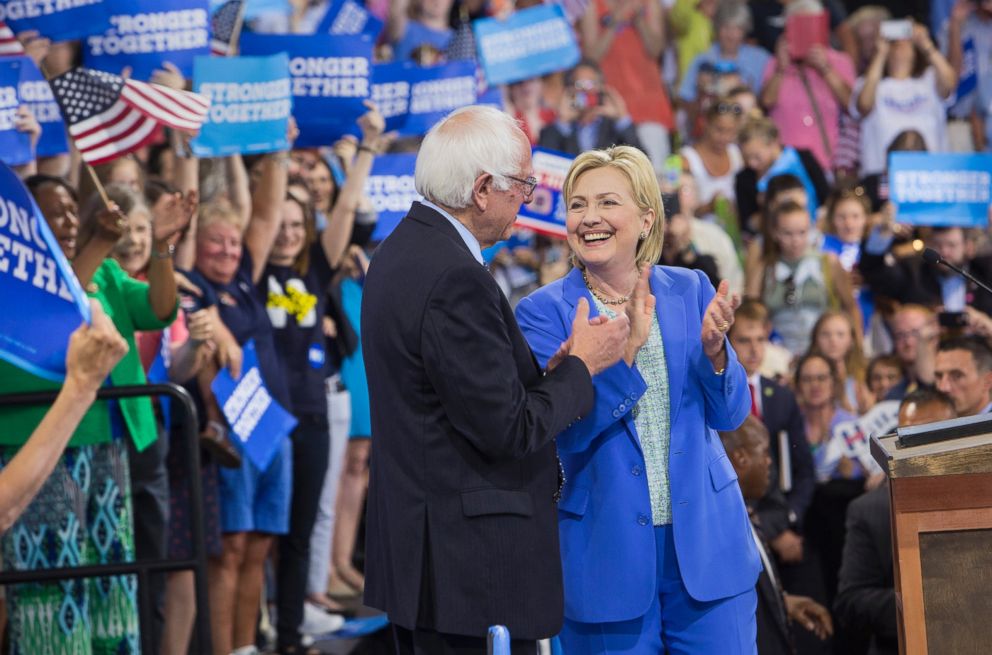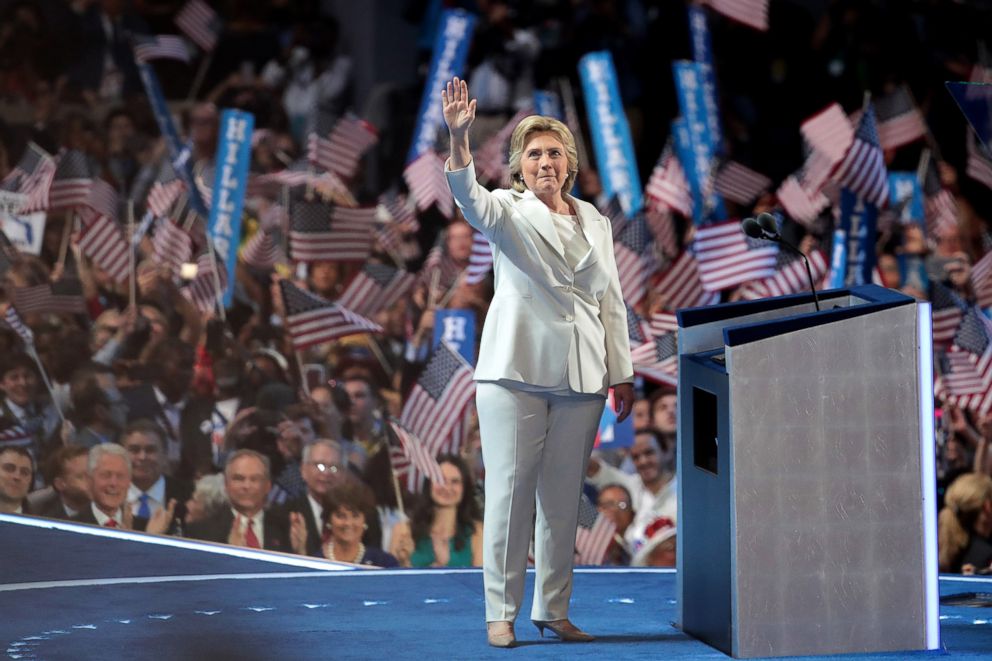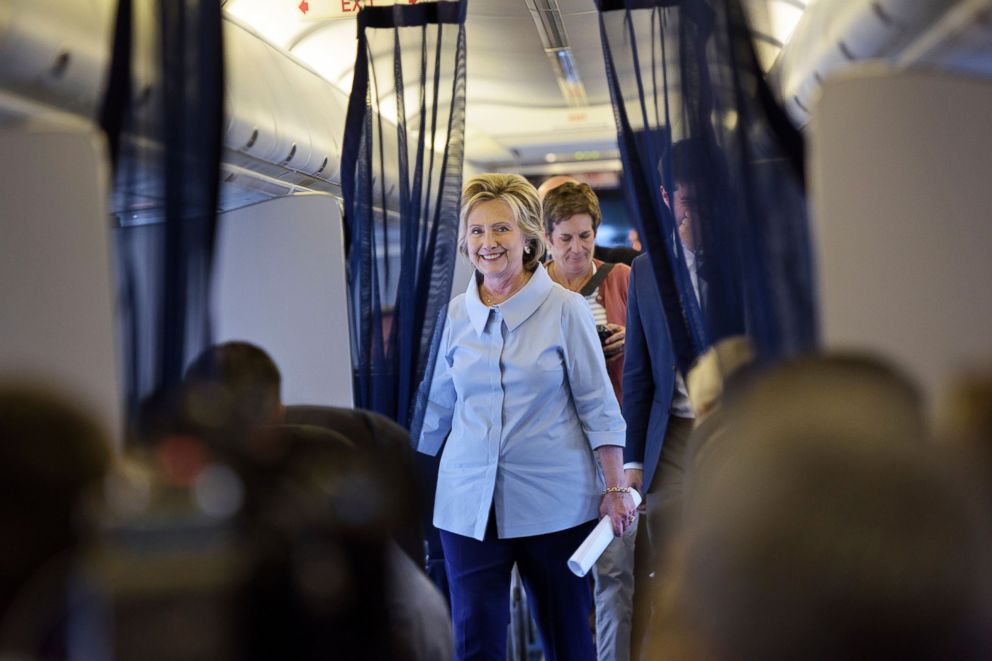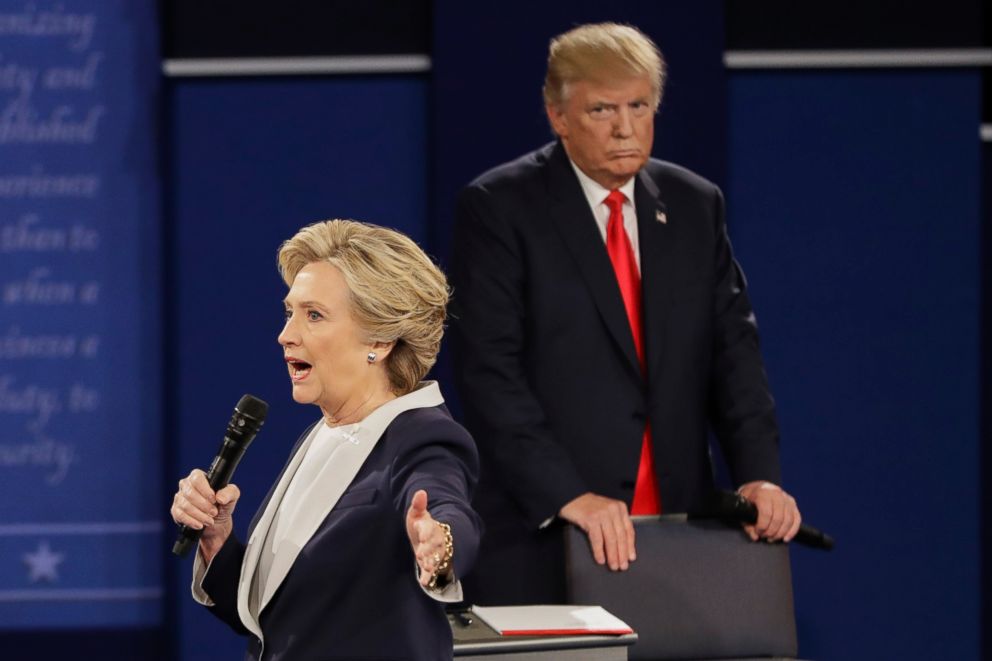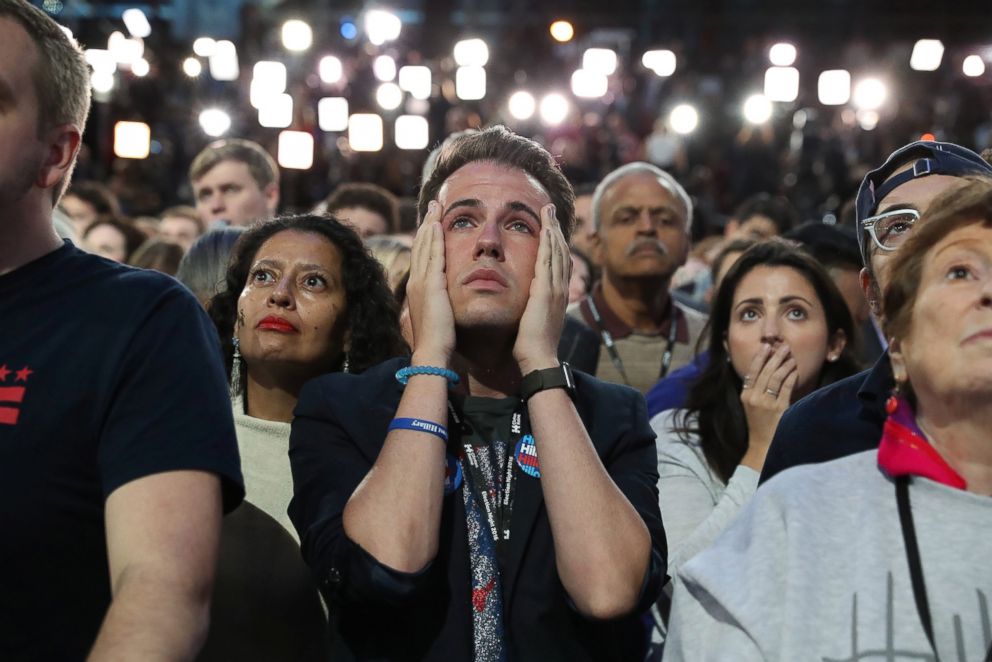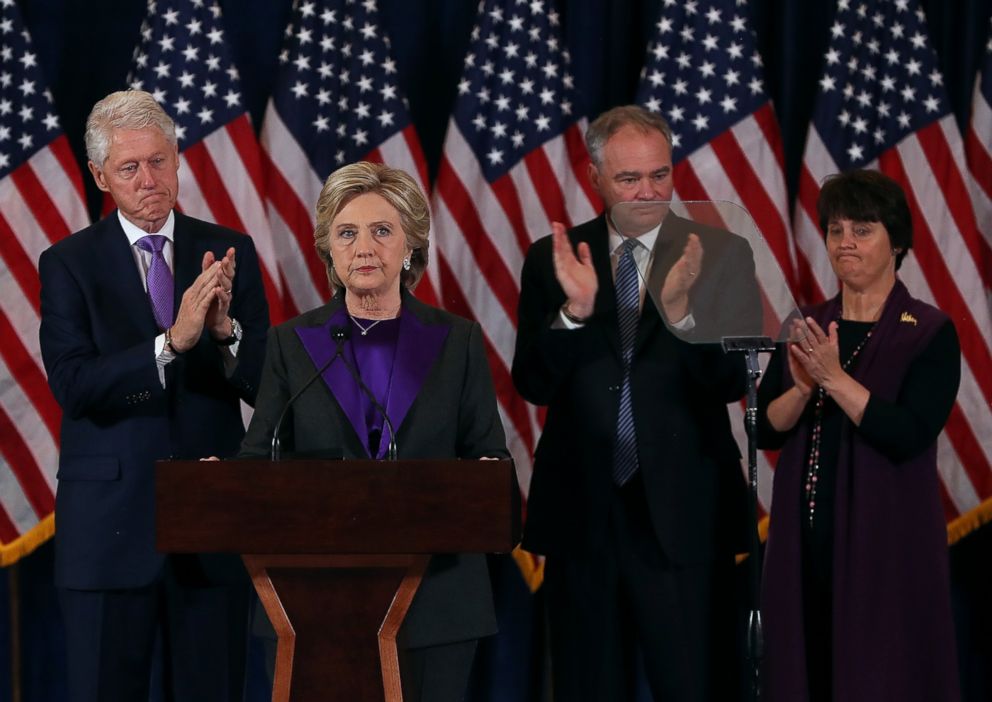Bernie Sanders Endorses Hillary Clinton for President
The Democratic duo held a joint event in New Hampshire.
PORTSMOUTH, New Hampshire— -- Sen. Bernie Sanders endorsed Hillary Clinton and said that he will do "everything I can to make certain" she wins the 2016 presidential election.
"Secretary Clinton has won the Democratic nominating process, and I congratulate her for that," Sanders said, interrupted by applause.
"I have come here to make it as clear as possible as to why I am endorsing Hillary Clinton and why she must become our next president," he said.
While his endorsement earned major applause at the New Hampshire venue, there was a group of Sanders supporters who walked out in protest, one of whom was holding a sign that read "Nope."
The former secretary of state became the Democratic Party's presumptive nominee last month, and while Sanders previously said he would vote her in November, he had withheld his formal endorsement.
It was their first joint general election campaign event, and they walked out together to Bruce Springsteen's song "We Take Care of Our Own," which Sanders used regularly during his campaign.
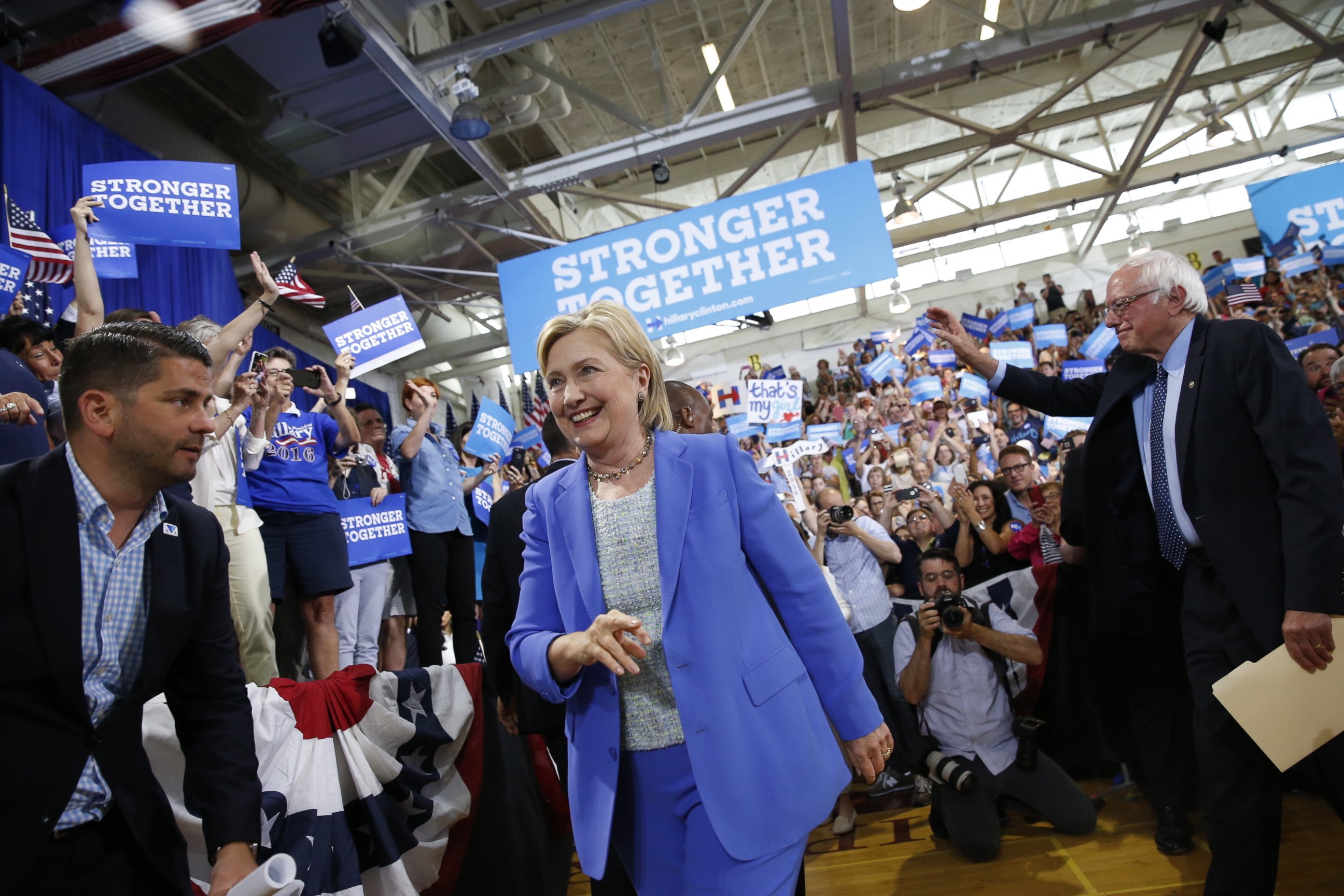
Sanders started his speech by thanking the millions of Americans for voting for him during the Democratic primaries and for the small donations he received to fund his campaign.
"Together we have begun a political revolution to transform America, and that revolution continues," he said with Clinton at his side. "Together we will continue to fight for a government that represents all of us and not just the 1 percent."
He closed his speech by calling her "one of the most intelligent people that we have ever met" and said he is "proud to stand with her today."
Hillary Clinton through the years
Clinton followed with her own remarks, thanking Sanders and saying "how much more enjoyable this election is going to be now that we are on the same side."
She made a direct appeal to his fans, ticking through the issues on which the two campaigns have come together, such as the minimum wage and college affordability.
She asked his supporters to get involved and donate. "We accept $27 donations too, you know," she joked, referring to the figure Sanders' team regularly cited as its average campaign donation.
"To everyone here and everyone across the country who poured your heart and soul into Sen. Sanders' campaign, thank you," she said, adding that they are needed for Democrats to take back control of the Senate.
"Let's open the doors to everyone who shares our progressive values," she said. "This is one of the most important elections in our lifetimes. So I'm asking you to stand with us, and then I'm asking you to keep working in the weeks, months and, yes, years ahead. You will always have a seat at the table when I am in the White House."
The candidates' march toward unity began last month when Sanders and Clinton met in Washington, D.C., to discuss their agendas and the future of the presidential race.
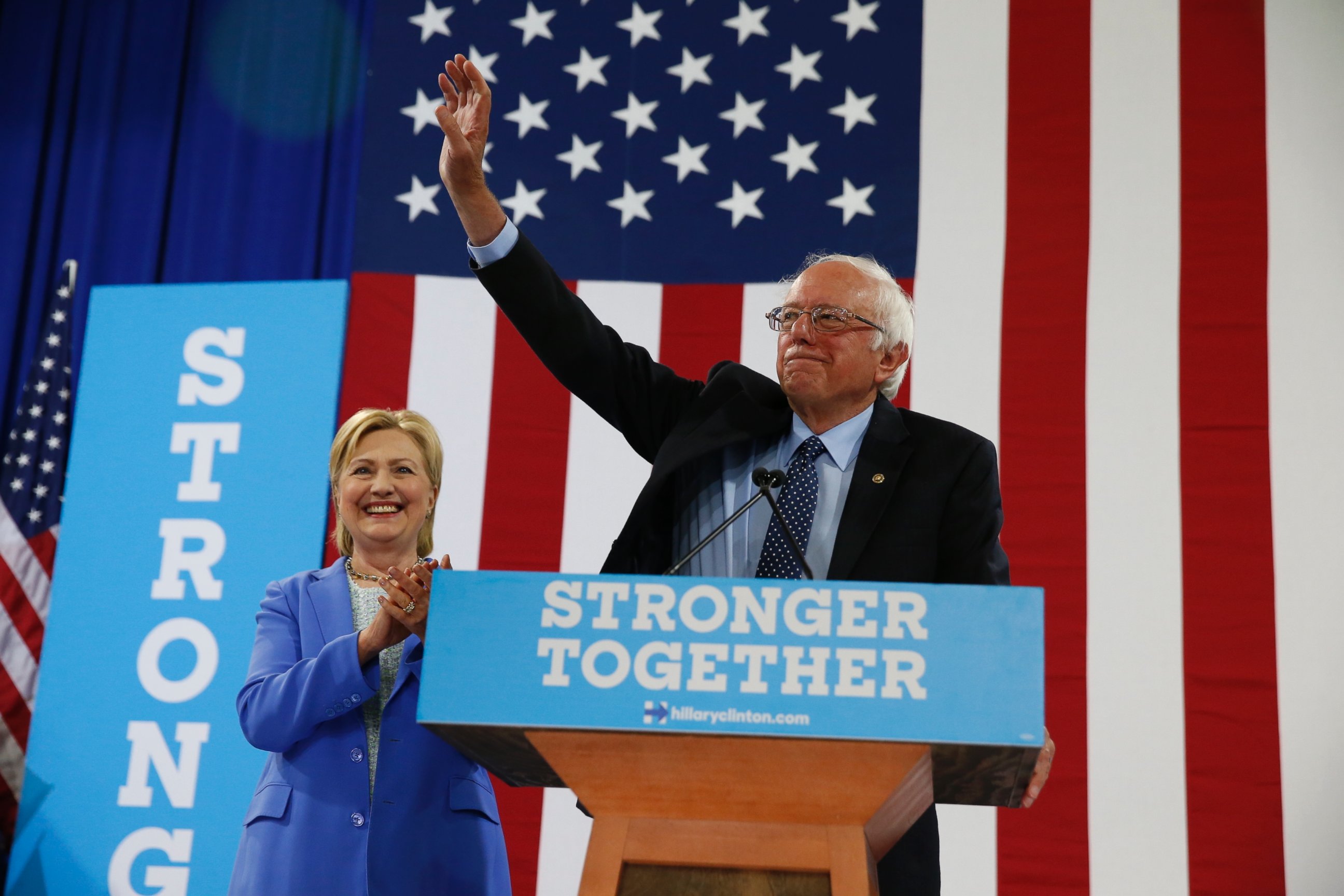
According to sources from both campaigns, Sanders campaign manager Jeff Weaver and Clinton campaign manager Robby Mook have remained in daily contact, negotiating policy rollouts and next steps. Last week the Clinton campaign unveiled two significant updates to her policy platforms on college affordability and health care, incorporating and crediting many of Sanders' ideas.
Sources from the Clinton campaign say her team has been reaching out to Sanders supporters, especially in states that Sanders won during the primary contest, including New Hampshire.
Eight years ago, Clinton held a summer rally with then-candidate Barack Obama in New Hampshire — which she had won that January — to demonstrate Democratic Party unity after he secured the nomination. Sanders handily won the state this year, and the decision to hold a similar event shows a clear effort to bring activists from both sides together.
Over the course of the primary season, Sanders won 23 contests, including many battleground states such as Colorado, Wisconsin and Michigan. He landed major victories in states like Washington, Idaho and Utah. Still, he fell short and lost by huge margins in other places, including South Carolina, New York and Arizona.
Clinton benefited from overwhelming support from officials in the party and superdelegates who committed to her candidacy early on and did not budge.
Despite stinging losses in the South Carolina primary and on Super Tuesday, Sanders was able to stay in the race for the duration in part because of his unprecedented small-donor fundraising. His insurgent campaign raised $225 million and will be remembered for some of the largest events of the campaign cycle and its appeal to young voters.
